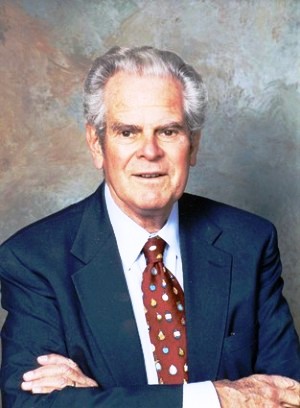![]()
The Words of the Sontag Family
|
|
The Words of the Sontag Family |

Frederick E. Sontag, a professor of philosophy and venerated mentor to three generations of students at Pomona College, where he made headlines nine years ago for forgiving a mentally ill student who had stabbed him in the neck, died Sunday at Pilgrim Place Health Services Center in Claremont. He was 84.
The cause was congestive heart failure, said his son, Grant.
The college's longest- serving faculty member, Sontag was to retire this month after 57 years of teaching and nearly 30 books on such topics as the problem of evil, the Danish philosopher-theologian Soren Kierkegaard, and trends in American religious culture, including the 1970s rise of the Rev. Sun Myung Moon and the Unification Church.
He also was an expert on existentialism whose writings in the 1960s placed him "in the forefront of advancing existential philosophy in the United States and even internationally," said John K. Roth, emeritus professor of philosophy at Claremont McKenna College and a former student of Sontag.
An ordained minister in the United Church of Christ, Sontag never had a pastorate but offered himself as confidant, counselor and mentor to thousands of students and officiated for them at more than 100 weddings. He advised a local fraternity, ate lunch with students in the cafeteria and welcomed them at his office, where he usually arrived about 7 a.m. and stayed until 10 p.m.
"I found that what I had been seeking when I thought I wanted to become a minister is what I now see as teaching," Sontag said in the magazine Works and Conversations in 2002.
He often defended students on academic probation or at risk of expulsion. Sometimes he even bailed them out of jail.
That was the case on Oct. 30, 2000, when he sought the release of Jared Essig, a 22-year-old senior with a history of mental illness who had been arrested on a shoplifting charge.
Sontag was driving Essig from the jail to his dorm when the student became delusional and pulled out a pocketknife, stabbing the professor twice in the neck.
Unaware of how badly he was hurt, Sontag, then 76, drove himself to the hospital -- but only after driving to his office to call the dean of students and leaving her a detailed message about the need to locate Essig before he could harm anyone else. Essig was apprehended a short time later.
By the time Sontag reached the emergency room, he had lost three pints of blood. He could have died from the stab wounds, which had missed his carotid artery by a few millimeters.
Most remarkable, however, was what happened after the assault: Sontag forgave Essig. He also found the young man a defense lawyer and testified on his behalf at the trial. Faced with a charge of attempted murder, Essig was found not guilty by reason of insanity. "My genes lack something," the philosopher of religion, who recovered from his injuries, told The Times shortly after the attack. "I don't seem to hold grudges."
Sontag was born in Long Beach on Oct. 2, 1924. His father was a Russian Jew who survived the pogroms and became a Baptist after settling in California in the early 1900s.
Sontag's interest in philosophy began at Stanford University, where he earned a bachelor's degree in 1949. At Yale University, he earned a master's in 1951 and a doctorate in 1952, the same year he joined the Pomona College faculty as an assistant professor of philosophy.
In 1966, Sontag spent a sabbatical year teaching at the Pontifical College of San Anselmo in Rome, a rare distinction for a non-Catholic.
In 1977, he published the book "Sun Myung Moon and the Unification Church," which was based in part on an unusual, nine-hour interview with the publicity-averse Moon, whose movement was stirring controversy in the United States for its aggressive recruitment and fundraising tactics.
Sontag's scholarly interest was drawn to what he saw as "a deep spiritual side" to the movement. "If ever there was a kind of independent mind who marched to his own drumbeat rather than the drumbeat of others, Fred would be it. Students loved him for that," Roth said.
Alumni showed their affection for the professor by raising funds for the renovation of what in 1997 became the Sontag Greek Theater at Pomona College.
In addition to his son, he is survived by his wife of 59 years, Carol; a daughter, Anne Karch; and three grandchildren.
A memorial service will be held at Pomona College at a later date.